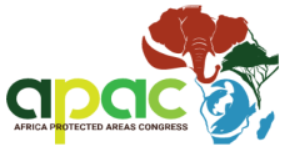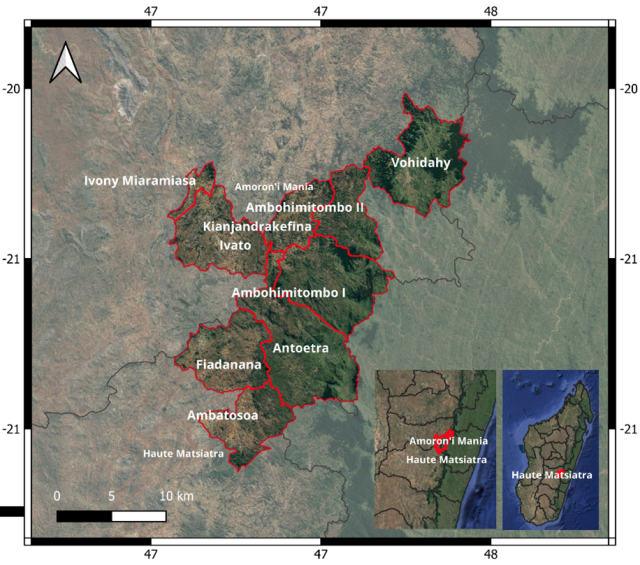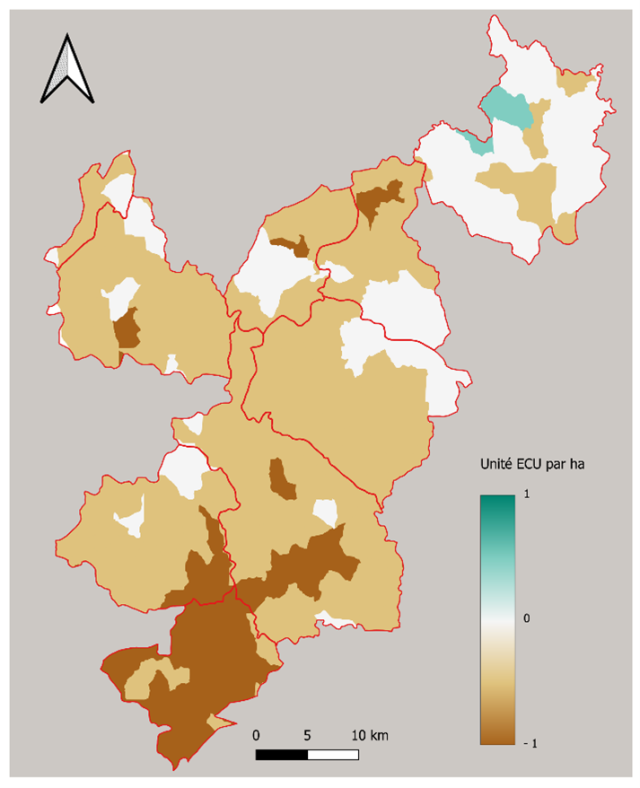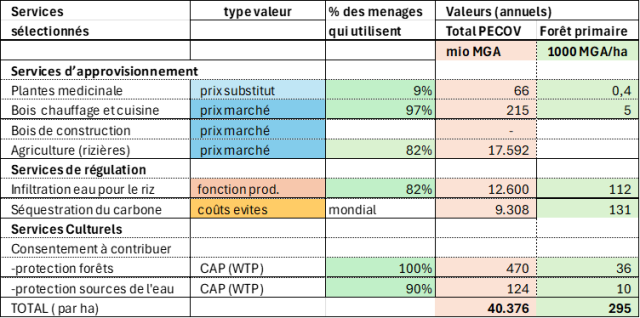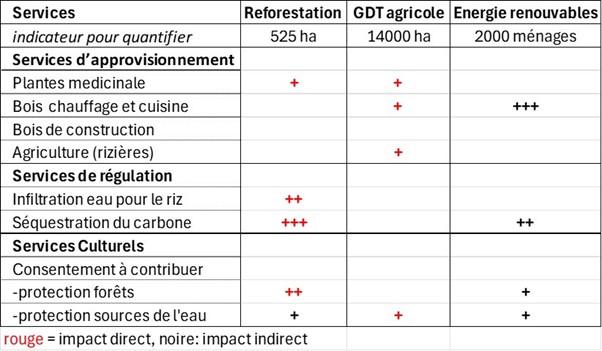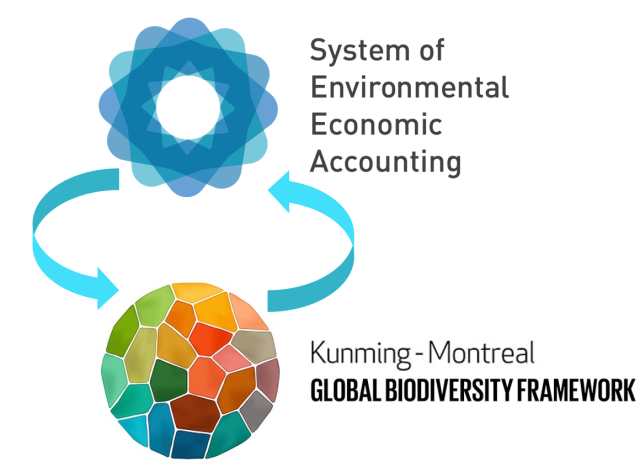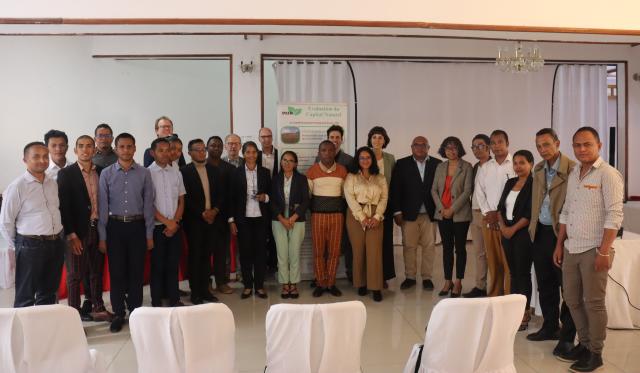Ecosystem Accounts for Decision-Support
The PECOV project is being implemented in nine communes in the central highlands of Madagascar. These communities have economies primarily based on agriculture, plantations, livestock, and unique woodcraft. The PECOV project aims to improve the efficiency of protected area management, deploy sustainable land management practices, and support the creation of ecovillages that prioritize human and environmental well-being.
As a first step in the project, ecosystem accounts have been developed for the study region as a tool for decision-support to inform and guide local policymakers. The project utilizes the Ecosystem Natural Capital Accounting (ENCA) framework, a technical accounting framework that measures the sustainable capacity of ecosystems to provide essential services. Additionally, it was shown how the ENCA-framework can be linked with the Kunming-Montreal Global Biodiversity Framework (GBF).
Deforestation Results in an Ecological Debt
The biophysical accounts reveal significant changes in land cover between 2018 and 2023, including increases in villages, rice cultivation, and savanna, alongside decreases in forest areas. These land-use changes result in a reduction in ecosystem capacity, highlighting the need for ecological debt compensation to reverse this trend.
Ecosystem Services and Monetary Accounts
The main ecosystem services were identified through participatory workshops with local experts and stakeholders. For these main services, monetary accounts were created based on data collected through extensive interviews in the ecovillages. The monetary accounts emphasize the economic importance of ecosystem services, such as medicinal plants, wood supply, and agriculture. Additionally, the results indicated the high importance of the water regulating services that the forest provides, which significantly impact rice yields. The project also assesses the value of CO2 sequestration and cultural services, underscoring the need for sustainable practices and reforestation efforts.
Scenarios Analysis: Identification of Main Threats and Beneficiaries
Through a combination of local data, expert knowledge, and remote sensing analysis, the main threats and beneficiaries to and from the ecosystem services were identified. The results suggest that sugarcane cultivation, rather than “Tavy” (slash and burn agriculture), could be a major driving factor for deforestation in the PECOV area, with a risk for accelerating mechanisms. The main ecosystem services benefiting from the PECOV project through reforestation, sustainable land management practices, and the installation of renewable energy would be carbon sequestration, cultural services, and the water regulation and purification services provided by the forest.
Link between ENCA and GBF
A close link between the ecosystem accounting and biodiversity frameworks was demonstrated:
- Indicator A.2: Can be calculated using national-scale ecosystem extent accounts.
- Indicator B.1: Relies on ecosystem accounts, requiring initial service selection and verification of accounting tables.
Different opportunities and recommendations were identified in linking both frameworks:
- Incorporate biodiversity data into ecosystem accounting.
- Align data collection programs for better reporting and policy decisions.
- Include ecosystem accounting in the National Biodiversity Strategy and Action Plan (NBSAP).
- Establish collaboration between ecosystem accounting and biodiversity communities.
Conclusion
By integrating natural capital accounting into land-use planning, the PECOV project aims to ensure the long-term sustainability of Madagascar's unique ecosystems, benefiting both current and future generations. The ENCA framework proved to be a strong tool in providing valuable data for policy-making based on biophysical and monetary accounts and scenario analysis. The findings support the development of strategies for sustainable ecosystem management and highlight the importance of collective action and environmental awareness.
Consult our research summary for policymakers below.
